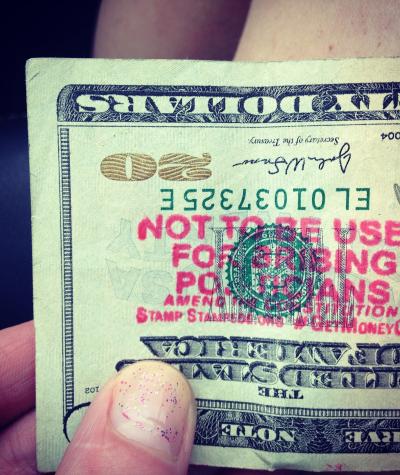The first reform that should be passed regarding outside spending is disclosure of the amount of money being spent, by whom, from whom, for what. Current law may only be showing the tip of the iceberg. Congress should take heed of the Supreme Court’s 8-to-1 ruling in Citizens United in favor of disclosure, stating that such disclosure is not only constitutional, but is the expected and indeed necessary counter-balance to the new corporate right to expend unlimited funds in US elections.
Justice Kennedy’s 8-1 majority Opinion stated on this point: “The First Amendment protects political speech; and disclosure permits citizens and shareholders to react to the speech of corporate entities in a proper way.
This transparency enables the electorate to make informed decisions and give proper weight to different speakers and messages.” Citizens United at 55.
The flood of outside spending – more than 5 fold the amount in the previous mid-term cycle – should also prompt a new discussion about the corruptive potential of independent expenditures.
In the Citizens United case, the Court never really looked at whether independent expenditures are corruptive as a factual matter, but rather decided the question as a matter of law. Certainly a candidate is going to look favorably upon the individual or interest which spent a significant amount of money to get that candidate elected, perhaps even more than a contribution which is likely a much smaller amount. Such a spender is likely to get access and influence with the official just as a contributor would; again, even more so.
This election cycle is likely to make clear that the Court’s lack of concern about the ability of large amounts of money to distort and corrupt the political process was a mistake and is worth revisiting.
The commentary was posted to The Hill's Congress Blog in response to the question in the title of this post.
